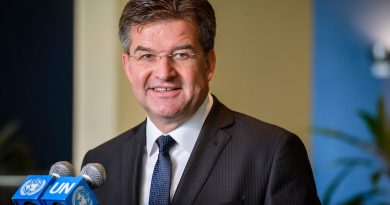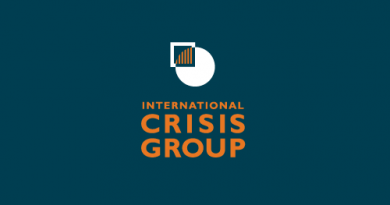All Things Diplo Lab with Dr. Huddleston
Casey Hatchimonji
Managing Editor
Recently, The Diplomatic Envoy sat down with Dr. Huddleston, Assistant Professor at the School of Diplomacy and founder of the DiploLab, to talk about the Diplomacy School’s newest initiative.
Dr. Huddleston has been the driving force behind the DiploLab. After his first year of teaching at Seton Hall, Huddleston created this lab with the help of Diplomacy School faculty, including Dean Courtney Smith and the School’s Chairman Dr. Martin Edwards.
Still in its early stages, the DiploLab has been operating since the beginning of the 2019 Fall semester, while a pilot program was run the summer prior to assess how the lab would function. Dr. Huddleston acknowledges that the program is still relatively small, mentioning that the process for these types of initiatives are often slow-moving. He pointed to the Security and Political Economy Lab at the University of South California (USC), which was created when he was in his second year of graduate school and it is only now recruiting students. Despite the slow-going process, the DiploLab has had a strong start, according to Dean Smith.
At its core, the lab is a collaborative research space where undergraduate students work alongside faculty members on research projects. Dr. Huddleston describes the lab -in its ideal form- as a structure that not only allows students to work on faculty-led research but also engage in other research aspects among themselves, or consult faculty members on their research questions.
Dr. Huddleston is currently writing a book, which is focused on examining how self-determination movements, de facto states, and separatist governments use diplomacy to attain their goals of recognition and independence. At this time, the lab has four students assisting Dr. Huddleston with research pertaining to his book. Their responsibilities include, among others, collecting news articles and turning them into an original quantitative data set and preparing literature reviews. The lab has several projects in the works, including student-led projects and more in collaboration with the Center for Peace and Conflict at the School of Diplomacy. Dr. Huddleston hopes that the lab will soon be able to publish student-authored works.
A hallmark of this lab is that it is truly collaborative, which speaks to its future potential. Even at this early stage, the students are getting tremendous opportunities besides being exposed to a learning culture and the ability to practice research skills. Daniela Maquera, a research assistant for the DiploLab shared her views on the initiative, saying, “through DiploLab I am developing skills in effectively preparing and communicating professional level research. Our work is a hands-on application of what we are learning in class to real life situations in the international relations field.”
Dr. Huddleston went on to describe the lab as having a “culture of curiosity” and its purpose being to expose students to academic research and the role it plays in the “production of knowledge and policies.” It will also serve to introduce students to faculty research and allow them to form relationships with the academic experts at the School of Diplomacy. Furthermore, students will have the chance to gather skills that are useful beyond traditional academic work. Dr. Huddleston pointed out that businesses, non-profits, and political campaigns need people who can work with data. He hopes that the DiploLab will both expose and create such opportunities for students.
When asked about the DiploLab, Dean Smith echoed these sentiments, saying, “my hope is that the DiploLab initiative will foster greater opportunities for our students to engage in research and to practice skills that will be directly relevant in their future careers.”
Harshana Ghoorhoo, one of the lab’s research assistants, attributes her work with DiploLab to unique research opportunities. When asked about her experience, she stated, “working with Dr. Huddleston on his research has exposed me to current practices and how theories and models of understanding in international relations have evolved. As a result of my work with DiploLab, I got the opportunity to research youth and political engagement with the Youth Center for Research, a think-tank based in Pakistan.”
Throughout his academic years, Dr. Huddleston has worked in research labs, both at USC and at Chapman University, defining his career path. He hopes that the DiploLab can similarly help students, whether first-generation college students like him or any student, trying to figure out their path.
With DiploLab, Dr. Huddleston has created a new opportunity specifically for undergraduate students, which has the potential to become a central aspect to the practice of research at the School of Diplomacy.



